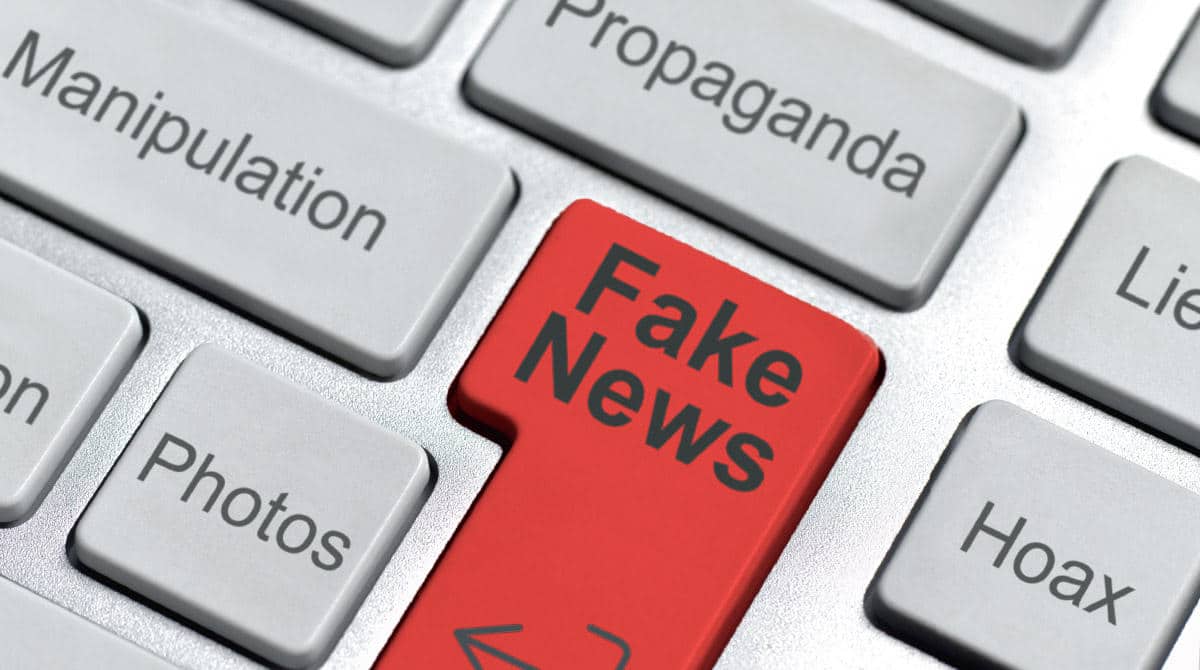Unfortunately fake news isn’t new anymore, it’s been around for a few years and generally speaking there seems to be an acceptance that it is here to stay. The phrase started to make a digital appearance in 2015 and the tragedy of it is no one is really sure what they read, see or hear online is necessarily truthful; some news is taken with a pinch of salt and a lack of belief is evident in how individuals now perceive what news organisations are putting out.
Why is Fake News a Concern for Our Online Digital Reputations?
Ultimately fake news is about the deliberate spread of disinformation or hoaxes either through the print media or increasingly the internet and which casts doubt on legitimate news. Its sole purpose is to mislead and usually represents a standpoint opposed to the one the perpetrator believes in.
In social media it is known as misinformation, but it’s still one and the same thing and because of the use of likes, shares and comments means that it can spread virally at an alarming rate going unchecked until it becomes part of the real conversation. Identifying it can be difficult not least because most people trust the organisations or friends who are sharing the content with them.
In the past two years a considerable amount of fake news has been generated in and around politics and in particular Donald Trump. In 2016 Buzz Feed discovered that the top 20 fake stories on Facebook received more engagement than the top 20 stories from credible news organisations. But it isn’t just politics that fake news is having an impact on because we are also seeing it crop in other areas of our lives including business, sport, music and fashion.
Recent Fake News Stories
Sir Tim Berners-Lee, the founder of the web, considers fake news to be one of the three most worrying trends on the internet that will have far reaching consequences for us all. potentially resulting in cyber-warfare that will topple governments and bring down business organisations if unchecked.
Over the past couple of years the fake news stories have become more elaborate and more difficult to counter once they have been picked up by the mainstream media and the impact can be far reaching. The two examples below give some idea of how serious fake news is becoming:
The BBC’s Money Box presenter, Paul Lewis, stated that 100,000 people would receive less Universal Credit over the 2017 Christmas period. The actual figure was much lower but by the time the story had been debunked several online and print publications ran with it causing Liz Truss, Chief Secretary to the Treasury to say in the House of Commons ‘disgraceful that fake news was put out on our national broadcaster.’
The German Chancellor, Angela Merkel, was reported by the Express to have stated that an EU army was required to defend Europe. Social media users picked up on it and soon the story rapidly spread across the internet. The following month the Express issued a correction stating that the article was based on their interpretation of the Chancellor asking for ‘more responsibility’.
The Spread into Fake Reviews
The problem with fake news is it now appears to have spread into other areas with a recent study finding that somewhere in the region of 61% of electronic reviews on Amazon aren’t real and in fact according to the Washington Post the problem is rampant.
Not only are electronic reviews targeted but so also are beauty cosmetics (63%), clothing (59%) and supplements such as vitamins (64%). Where will it stop?
Fake News or Reviews and Your Online Reputation
If you know that a news article or review is fake, then clearly the best thing you can do is report it to the website or author and make a point of flagging and sharing your findings with other users. Social media sites have certainly upped their game in this area, particularly after coming under close scrutiny from the authorities about not doing enough.
But in many cases it is becoming increasingly difficult to tell the truth from the untruth, the onus is on us all to stay alert and be prepared to flag a story if the facts don’t add up because if it involves the business you work for, a brand you use regularly or it is simply about you then the reputational damage this can do to your online presence can be devastating.






